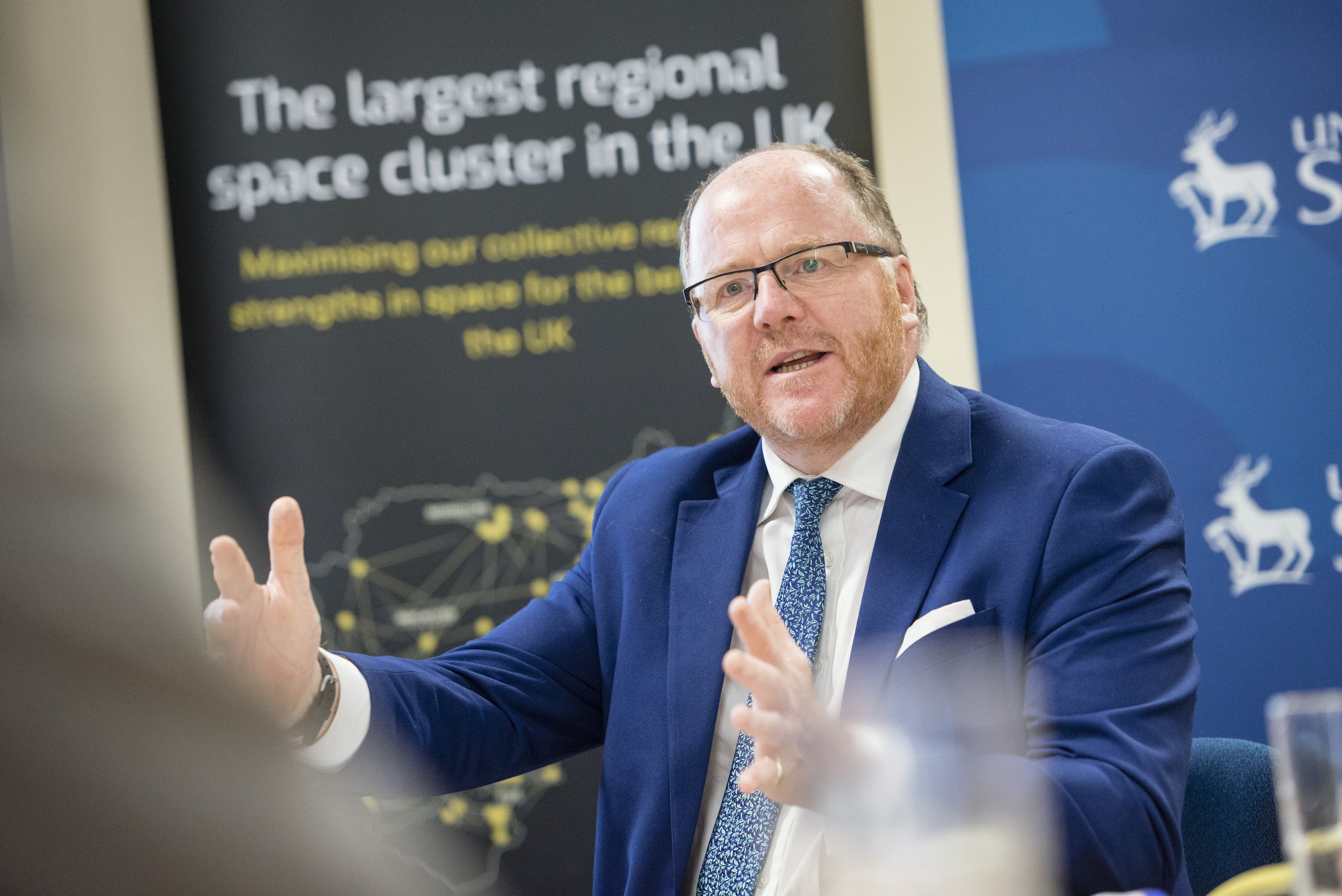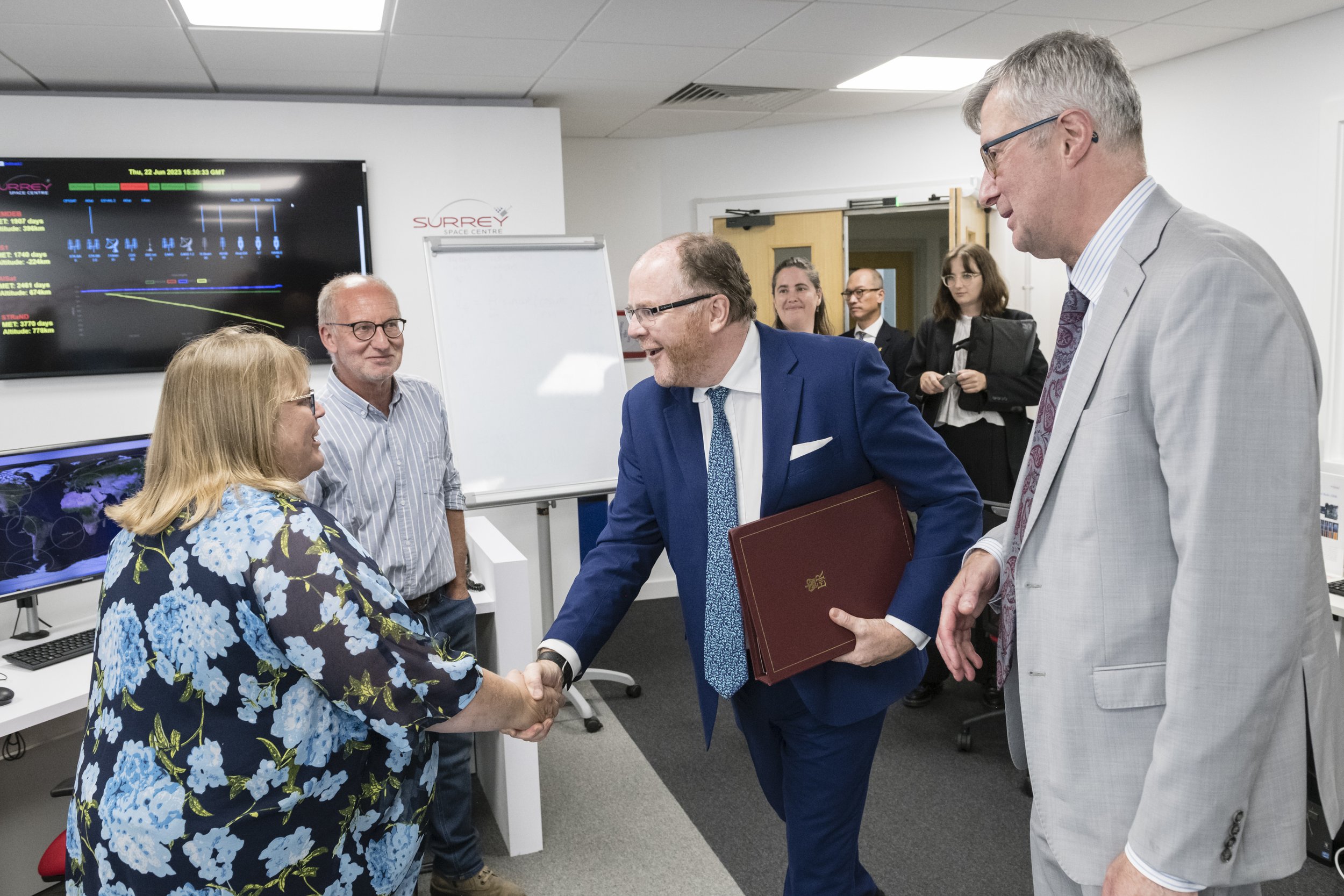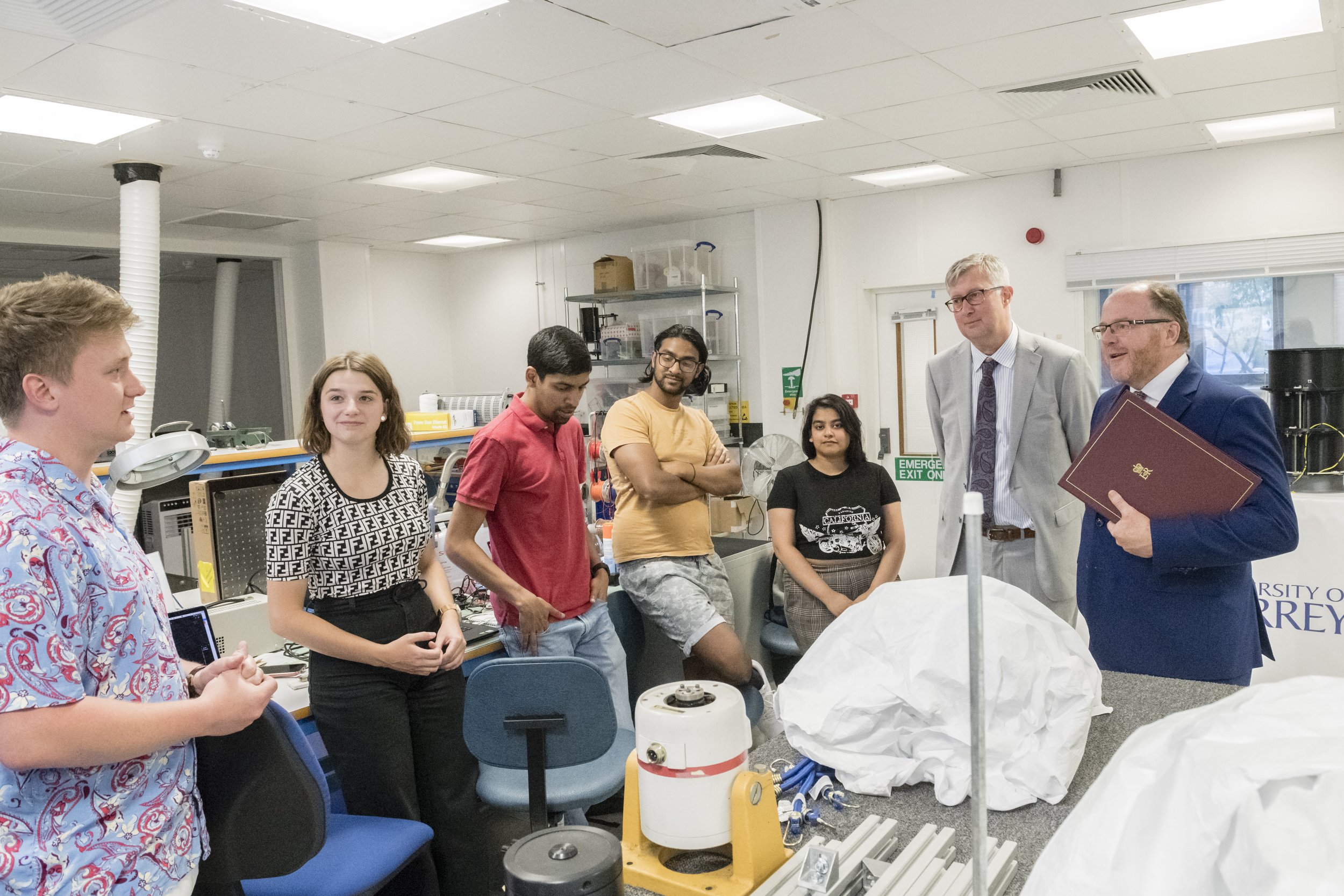Skills and innovation top the agenda as Science Minister visits UK’s largest space cluster
Skills and innovation were the focus for Minister of State for Science, Innovation and Technology, George Freeman, as he met with Space South Central businesses and academics in Guildford on Thursday (22 June 2023).



The UK’s largest space cluster, Space South Central champions Hampshire, Surrey and the Isle of Wight’s thriving space sector, representing more than 130 space-related businesses and its partner universities of Southampton, Portsmouth and Surrey.
During his visit, George Freeman gained first-hand insight into the combined innovation power of the three universities, SMEs and corporations, and toured some of the region’s world-class facilities, before joining representatives from 13 Space South Central businesses and educational institutions for a Skills Roundtable.
The Minister’s visit began at the University of Surrey’s Surrey Space Centre, where he was welcomed by Vice-Chancellor and President, Professor Max Lu, members of the Space South Central Advisory Board and Jonathan Hulks, the UK Space Agency’s Space Ecosystem Development Manager.
Here, he was introduced to some of the newest regional academic/industry initiatives including the University of Portsmouth’s NASA-inspired Space Mission Incubator and SpaceCraft at the University of Surrey. SpaceCraft is a new initiative making it easier for organisations to create space-flight equipment and conduct space experiments, and enables students and companies to develop practical engineering skills.
A tour of Surrey Space Centre’s labs followed, including Richard Foster-Turner, Chief Operating Officer of Atout demonstrating their Smart Tank which has revolutionised how liquids like fuel can be measured in zero gravity.
The Science Minister then travelled to the headquarters of Surrey Satellite Technology Ltd (SSTL) for the Skills Roundtable. Launched as a University of Surrey spin-out in 1985 to exploit the commercial potential of its novel small satellites, SSTL is now a wholly-owned subsidiary of Airbus and a world leader in its field.
The UK space industry is worth £17.5 billion – up £1 billion in the past year alone – and employs nearly 49,000 people. However, in such a rapidly evolving sector, skills gaps present a challenge to future growth. In the latest Size and Health of the UK Space Industry report, the UK Space Agency found that although 60% of space-related organisations expected to grow in the next three years, 46% of total respondents predicted that recruiting staff would be an obstacle to ongoing commercial success, with 38% concerned about skills shortages.
Discussions at the Skills Roundtable demonstrated the value of education providers and SME collaboration to generate ideas and identify solutions. Reflecting the ageing population, many businesses present predicted high levels of retirement among older, experienced staff over the coming years, exacerbating their existing skills and recruitment challenges. However, after education providers expressed their struggle to attract experienced teachers from highly-paid technology or engineering careers, delegates explored how some retirees may be interested in part-time teaching or training roles, equipping a new generation of employees with in-demand skills.
Other topics raised at the Roundtable included the need to increase diversity and make children and workers outside the space industry aware of the vast range of careers available for people of all academic backgrounds.
Also discussed was the need for engineering and computing to be better incorporated into the National Curriculum and improving the perception of vocational qualifications and the value of ‘hands-on’ skills, along with the cost and resource barriers faced by smaller organisations wanting to offer internships or apprenticeships.
With decades of space heritage and a rare mix of end-to-end capabilities, innovation in the Space South Central region has always benefited from long-standing relationships and collaborations between industry and academia. Key aims for the Space South Central cluster’s team are to further strengthen academic/industry partnerships, both to boost economic growth and coordinate efforts to tackle skills gaps.
Dr Louise Butt, Director of the Space South Central Enterprise Network, said:
“Our businesses and education providers are working together to make the Space South Central region the perfect place for starting, developing or switching to a career in the space sector.
“There are so many training opportunities in the area, from apprenticeships for school leavers to postgraduate and professional level courses. We are particularly proud of our industrial and academic collaborations which are addressing the skills employers need.
“Space South Central and our members are committed to taking positive action to tackle the skills gap, with training and employment opportunities to safeguard future growth locally, nationally and internationally.”
Harshbir Sangha, Missions and Capabilities Delivery Director at the UK Space Agency, said:
“The UK Space Agency is working with Space South Central to support the innovations that help our businesses grow and to champion the benefits of space to inspire and train future generations.
“Space South Central plays a vital role in strengthening Hampshire, Surrey and the Isle of Wight's vibrant and diverse space ecosystem by working with local organisations to identify strengths and develop solutions to local challenges.
“The UK Space Agency recently announced £50 million in funding for R&D infrastructure across the UK to catalyse the development of new space products in fast-growing markets and we are delivering the Space Sector Skills Survey to map skills needs across regions and local clusters. The results of this survey will support future, multi-million-pound investments in training for current and potential space sector workers, through the Agency’s Inspiration Programme.”
Professor Max Lu, President and Vice-Chancellor of the University of Surrey, said:
“The University of Surrey is synonymous with cutting edge research in space technologies and training the next generation of space scientists and engineers. It’s great having the opportunity to share with the Minister the significant contribution of our area to this important UK industry and how we’re ensuring the Space South Central region – and the wider country – have skilled people to keep us at the forefront of development, research and innovation.”

